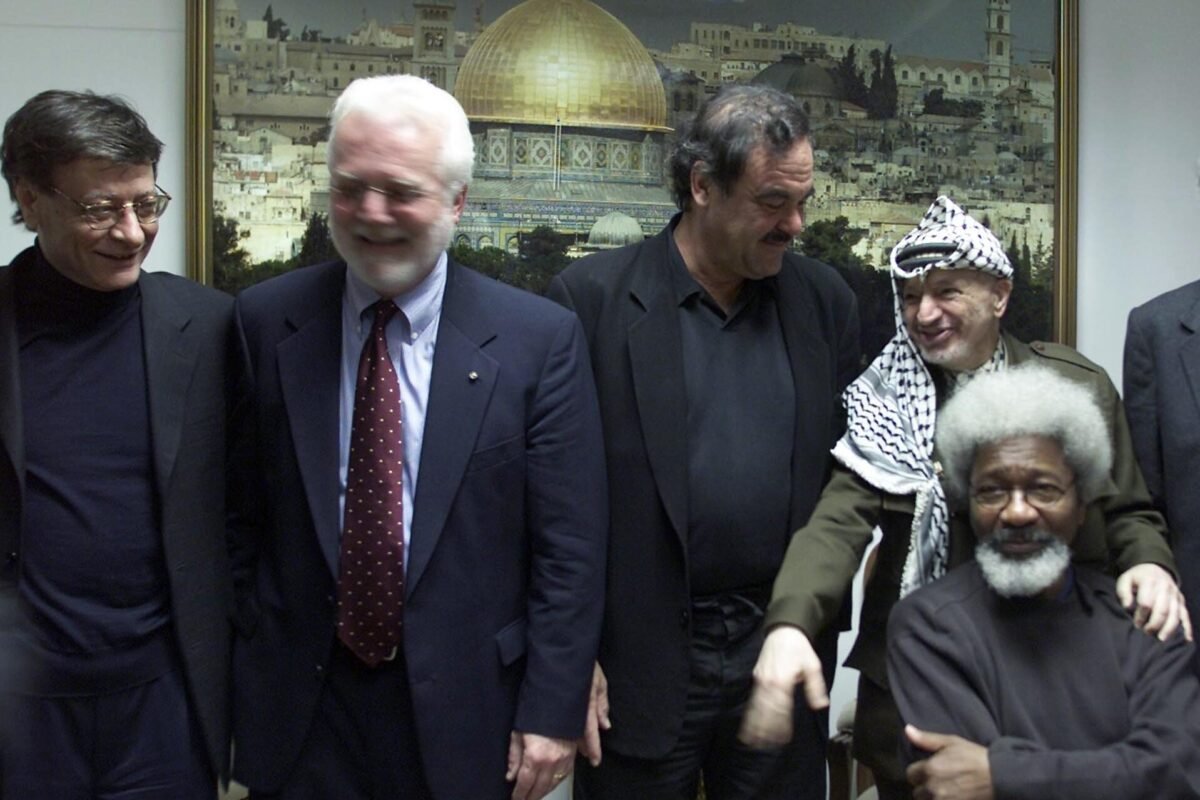Martyrs occupy a special place in the hearts and minds of Palestinians. In the Palestinian Declaration of Independence, written by Palestinian poet Mahmoud Darwish and proclaimed by Yasser Arafat on 15 November 1988, an oath was taken of unrelenting struggle before and in honour of the sacrifice of thousands of Palestinian martyrs who fell in the struggle.
It is a source of inspiration and hope for those struggling to end the occupation and establish Palestinian sovereignty and independence.
Martyrdom is one of the important concepts of Islam and concerns not only the sacrifice and the surrender of one’s life but also the benefit of the collective, the Islamic Ummah (Nation). According to Islam, martyrs (Shahid in Arabic) are those who suffer persecution and die on the battlefield, facing the enemy for a just and legitimate cause – the one who dies to save others, the innocent victims and the non-Muslim who dies fighting for a just cause or for his country.
In this context, the martyr is, above all, a Mujahideen or fida’yyin, a Palestinian resistance fighter; a Muslim fighter willing to sacrifice his life for a cause based on justice and the fight against oppression. In the Qur’an, the holy book of Muslims, it is said: “And do not believe that those who have succumbed for the sake of Allah [God] are dead; on the contrary, they live gracefully by the side of their Lord (3:169).”
Martyrdom also denotes the exercise of Jihad, an Arabic word that means “to strive”, “struggle”, “effort” to achieve something – in this case, striving for justice or against injustice. The effort for the defence and security of the Islamic Ummah indicates that every Muslim has a duty to fight on behalf of his brother in faith and defend the community against foreign threats and internal arbitrariness.
Over the centuries, the Palestinian people have given thousands of martyrs to their cause of liberation, which dates back to battles against Crusaders, Romans, Persians, Ottomans, the British and, in the last 73 years, Zionist Jews coming from Europe to implement a colonial project of Jewish supremacy in Palestine.
In 2002, a group of more than 70 Palestinian intellectuals, including Mahmoud Darwish, Rima Tarazi, Georges Ibrahim, Jamal Salsa, Izzat Ghazzawi and Mazen Saadeh, released a manifesto against yet another Israeli military operation that year. In one of the passages, they cite the harsh reality in which: “The living are deprived of the basic right to life, and martyrs are denied graves to rest in peace. Above all, however, what we see now is the expression of the desire of a people who have no choice but to resist.”
When Christians first conquered Jerusalem in 1099, there was a massacre in which hundreds of non-Christians (infidels) were martyred. When Salah Ad-Din Yusuf Ibn Ayyub (Saladin) reconquered Jerusalem in 1187, a massacre against non-Muslims was feared. Yet Saladin, at the height of his military power, showed the same respect and compassion for the Christian inhabitants that Caliph Umar had devoted five centuries earlier, allowing them to collect his deceased and give them proper treatment.
We recently recall the martyrdom of the historic leader of the Palestine Liberation Organisation (PLO), Yasser Arafat, who surrendered his soul to the Creator on the morning of 11 November 2004, at the Percy Military Hospital in Paris. Arafat struggled for 13 endless days with a disease that, it was later learned, had been caused by Israel’s poisoning by Polonium-210, according to studies by medical examiners from Switzerland, Russia and France. After learning the result of the analyses, his wife Suha Arafat declared that it revealed: “A real crime, a political murder. It is scientifically proven that he did not die a natural death.”
Arafat called himself a Palestinian soldier who would use his weapon to defend not only himself, but also all Palestinian children, women and men, and the existence of Palestine. He once asked in an interview with Reuters: “Is there anyone in Palestine who doesn’t dream of martyrdom?” Israel refused to allow Arafat to be buried on the grounds of Al-Aqsa Mosque in Jerusalem, where he was born. His remains are in the memorial built next to where Mukata’a, his office in Ramallah, used to function.
READ ALSO: SDPN condemns Britain’s move of blacklisting Hamas
Other martyrs are revered by Palestinians, such as Sheikh Ahmad Yassin, one of the founders of the Islamic Resistance Movement Hamas, who survived two assassination attempts. The first, in 2002, took place in the district of Sabra, in Gaza City. The second, in September 2003, was when a bomb was dropped on a building where several Hamas leaders were meeting.
Sheikh Yassin was known for his high morals, strong will, determination, wisdom in managing Islamic organisations, deep insight into issues relating to the Palestinian cause, and steadfast attitude not to give up an inch of Palestine, regardless of the consequences. He was martyred in a targetted attack by Mossad in Gaza on 22 March 2004, when a helicopter fired a missile that hit him while travelling in his wheelchair through the city’s streets, also killing nine other Palestinian martyrs.
On 22 July, 2002, Israeli warplanes dropped a one-tonne bomb that totally destroyed the building where Salah Shehade lived, killing 18 Palestinians, including Shehade, his wife and one of their 14-year-old daughters, as well as security guards and other children. Shehade is the founder of the first military branch of Hamas called Al-Mujahidoon Al-Filistiniyoon (the Palestinian Mujahideen). It was later transformed into the Izz Al-Din Al-Qassam Brigades, the largest and best-equipped group operating in Gaza today, whose name refers to Cleric Izz Al-Din Al-Qassam, a Muslim preacher born in Syria in 1882.
Eternal glory to the memory of men and women, of all races and religious beliefs, who are martyrs in the battle against injustice and dared to fight for the freedom, sovereignty and self-determination of their people. The blood of martyrs will continue to fuel the struggle for Palestinian freedom against Israeli colonial occupation.













